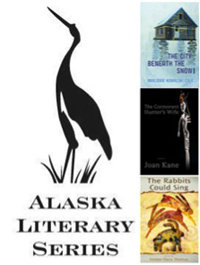Page 58 • (2,739 results in 0.039 seconds)
-
Federal Grant Links Corporation for National Service AmeriCorps Council for International Education of Scholars (CIES) Fulbright Programs Defense Advanced Research Projects Agency (DARPA) Environmental Protection Agency (EPA) Environmental Education Grants Health Resources and Services Administration Health Resources and Services Administration Workforce Grants Institute for Museum and Library Services NASA National Endowment for the Arts (NEA) National Endowment for the Humanities (NEH) NEH
-
Amber Khederian Assistant Director of the Writing Center and Writing Center Consultant Full Profile She/Her, They/Them
-
understand the text in a more holistic way. Therefore, knowing how to craft a good argument and defend it well using textual evidence is an important skill to learn in preparing for your college career. The most important things to consider when writing a literary analysis paper are: what is your argument? Are you expressing it correctly via a well-placed thesis statement? Do you support your argument well throughout your essay? Support for an argument typically involves using lots of evidence from the
-
& Environmental Engineering, and Chemical & Biomolecular Engineering. You’ll participate in research with one or more of our faculty, learn about careers in science and engineering, and see how scientists blend knowledge and skills from physics, chemistry and biology to investigate some of the most challenging problems in environmental sciences. We encourage applications from undergraduate students who are citizens or permanent residents of the U.S., especially attending universities other than Georgia Tech
-
communication and global studies at PLU. She also double minored in environmental studies and English writing. Her day-to-day job includes leading tours and and answering many questions, among other duties. “It’s pretty awesome to see a 7-year-old kid sharing a cool fact about Yosemite that he remembers from when you told him,” Plog said. She said her job is a way of life — hiking, walking, enjoying the great outdoors, interacting with diverse visitors, living where she works and focusing on education and
-
and to apply online, visit: www.cb2.wsu.edu/reu.html Application deadline: February 20, 2018 Read Previous Joseph Breen Memorial Fellowship Read Next Interested in the Field of Environmental Public Health? LATEST POSTS ACS Diversity, Inclusion, Equity, and Respect (DEIR) Scholarship May 7, 2024 Environmental Lab Scientist in Training May 2, 2024 The Priscilla Carney Jones Scholarship April 18, 2024 $2000 DEIR scholarship- Extended Deadline May 15! April 16, 2024
-
WSEHA 2020 Student Scholarships Posted by: alemanem / February 25, 2020 February 25, 2020 The WSEHA 68th Annual Educational Conference: 2020: A Clear Vision for Environmental Health will take place April 27-29, 2020 at the Hotel Murano in Tacoma, WA. WSEHA will again be offering one or more student scholarships. Questions? Please visit: https://www.wseha.org/student-scholarships for instructions and the application and recommendation forms. Or see the announcement-2020. The deadline for
-
Bella Bravo & Miranda Morgan Bella Bravo & Miranda Morgan Thursday, April 11, 2024 7:00 PM, Regency Room, AUC 203 This event is open to the campus community for in-person attendance. Bella Bravo is a fiction writer. Their stories have appeared in NY Tyrant and Driftless Magazine. They earned an MFA in fiction at the University of Wisconsin, Madison, where they were a Chancellor’s Fellow and won the August Derleth Graduate Creative Writing Prize. They’ve received fellowships from Mineral School
-

April 3, 2012 PLU MFA Program presents Alaskan writers at Richard Hugo House Four writers from Alaska, including Peggy Shumaker, the Alaska State Writer Laureate, will read from their new books at 7 p.m., Monday, April 9, at Richard Hugo House: 1634 11th Ave, Seattle, Wash. The event is free and open to the public. Shumaker, who will host the Seattle launch of the Alaska Literary Series for the University of Alaska Press, says, “Please join us for a lively evening of fresh new writing from the
-
application of Constructivist international relations theory. Using the Sacred as an avenue toward empathy, participants journey closer to mutual respect, active listening, and ensuring a positive atmosphere, eventually building trust and rapport. Holly KnutsenThank you to my wonderful family for their endless support. And thank you to Dr. Zbaraschuk, Dr. Robinson-Bertoni, and all of the PLU faculty for their time, patience, and dedication to my learning. Hinduism as an Environmental Ethic
Do you have any feedback for us? If so, feel free to use our Feedback Form.


